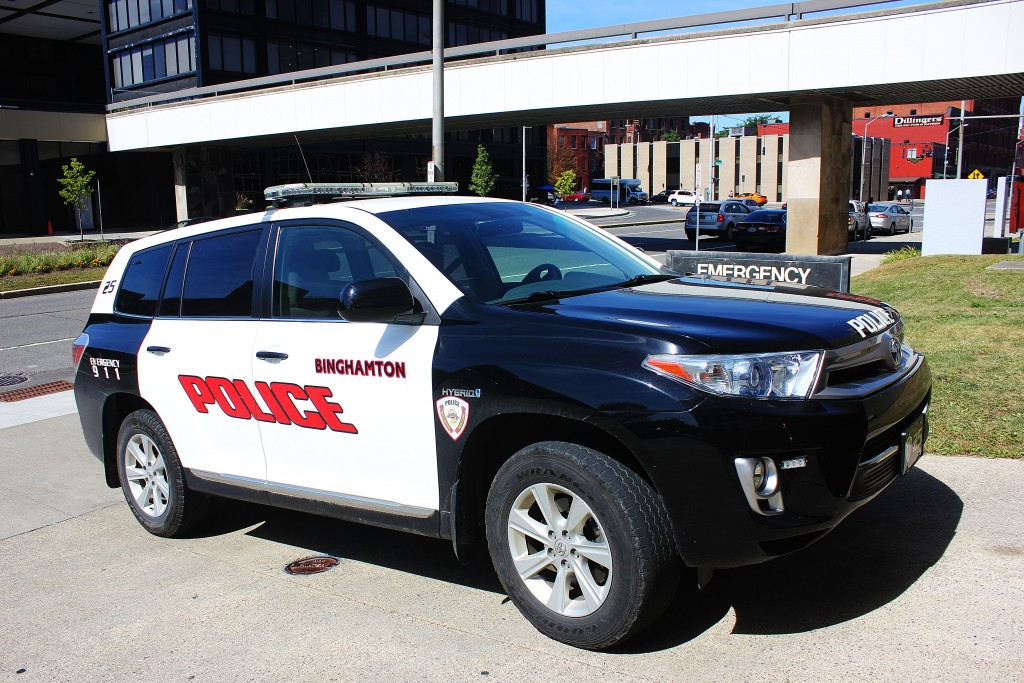
By early November, all Binghamton Police Department officers will be mandated to wear body cameras while on duty.
The city of Binghamton will purchase 90 chest cameras from Taser International, an equipment manufacturing company which specializes in electronics. According to Jared Kraham, deputy mayor of Binghamton, the police department will spend $116,000 to cover the first year of a five-year contract that will include the storage of the captured video.
The body camera bill was introduced to the city council via executive action from Mayor Rich David. The council is set to approve the transfer of funds on September 23 and the next day the mayor plans to sign the legislation. The cameras will take about four weeks to arrive and will start off in a pilot program — with certain units of the police department — before expanding to all officers.
The policy and regulations for the cameras that officers will use is still in the works, but is in the final stages. According to Kraham, the cameras are part of the administration’s push for advances in safety.
“This is the latest example of the mayor’s commitment to public safety and reducing crime in our community,” Kraham said. “It allows for increased transparency, increased trust and protects not only residents, but also officers and the city of Binghamton.”
Paradyse Blackwood, a sophomore majoring in integrative neuroscience, said that the usage of body cameras is a necessity because of current social issues and an additional way to make sure officers are abiding by police regulations.
“I think that it should happen because police brutality is a serious issue in this country right now,” Blackwood said. “We need to make sure that everyone is following protocol.”
The cameras will not be implemented by Binghamton University Police Department (UPD) officers as of now. Chief of UPD Timothy Faughnan said he is not considering implementing them due to unclear protocol, such as when to turn the cameras on and off or what the cameras are allowed to record.
”If this was all established and everybody knew exactly how to do it right, I would be all over that,” Faughnan said. “My goal is I want to do it right the first time.”
He added that the issues that surround the storage of the video, which must comply with Department of Justice standards such as being held for seven years before the video can be deleted, cost money and resources that his department does not have.
Patrick Miraglia, an undeclared freshman, said the cameras were something the University police should still look into despite financial issues.
“If there’s money there then I think it solves a problem down the road,” Miraglia said. “It will be a safer environment and easier to figure out what actually happened.”
For now, Faughnan said that his department will be watching the progress made by the city of Binghamton and apply that to the needs of his department.
“Colleges and universities are a very unique environment,” Faughnan said. “We need to move very cautiously to make sure we protect the rights of the students.”


